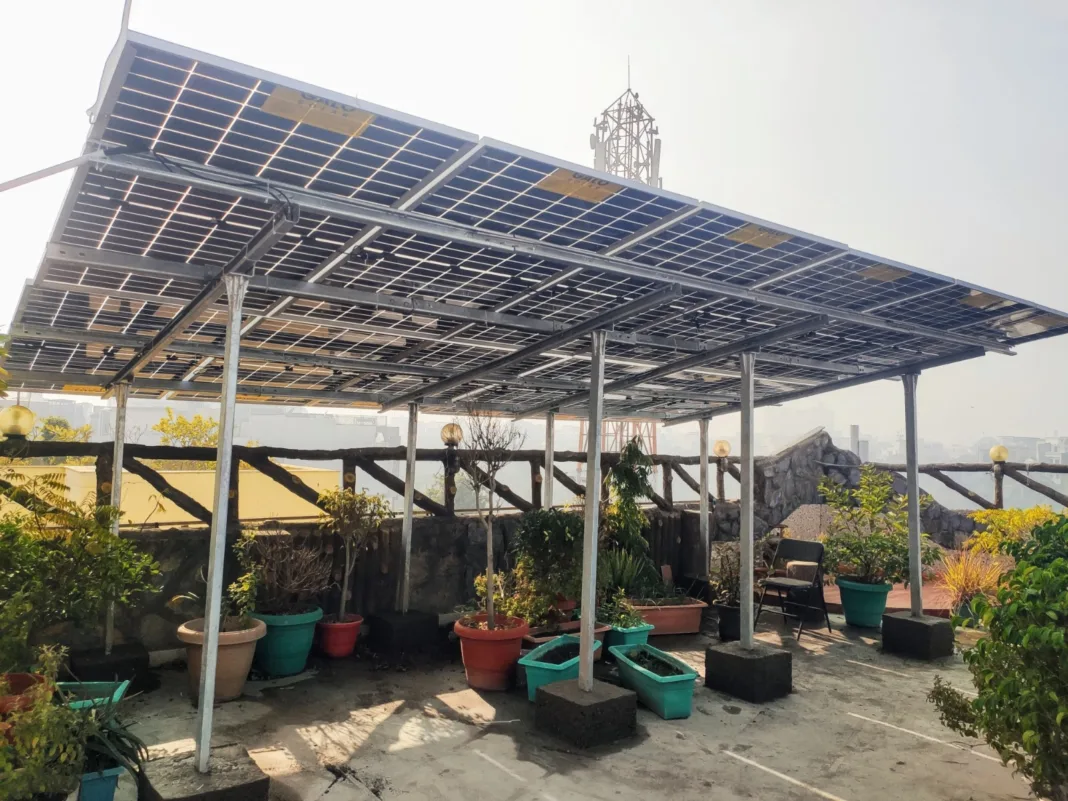Solar power is gaining popularity among homeowners looking to cut energy costs and increase home value due to its economic benefits. Studies indicate that homes equipped with solar panels tend to sell at higher prices. Research suggests that an average 5 kW solar system can add up to $29,555 in resale value, making it a financially sound investment. As energy prices continue to fluctuate, homes with solar panels become more attractive to buyers looking for long-term savings and energy independence.
Reducing Electricity Costs
An on-grid solar system significantly lowers electricity expenses by allowing homeowners to generate their own power. By reducing dependence on the conventional power grid, solar-powered homes experience substantial savings on monthly utility bills. In some cases, homeowners can completely eliminate electricity costs, making solar an appealing financial decision.
As more buyers seek energy-efficient homes, properties with solar panels gain an advantage in the market. A house with predictable, lower energy costs stands out to potential buyers, making it easier to sell at a competitive price.
Increased Marketability
With rising awareness about sustainability, homebuyers are prioritizing energy-efficient properties. Homes equipped with solar power are seen as a practical investment because they provide long-term financial benefits. Studies indicate that solar-powered homes tend to sell faster and at higher prices than homes without solar installations.
For sellers, a solar installation offers an added selling point, allowing them to position their property as cost-effective and environmentally friendly. Buyers looking to reduce their monthly expenses are more likely to consider homes with pre-installed solar systems, giving sellers an edge in negotiations.
Environmental Benefits
Solar energy is a renewable, clean power source that reduces reliance on fossil fuels and lowers carbon emissions. Unlike traditional energy sources, solar panels do not produce greenhouse gases or contribute to air pollution. Homeowners who install solar panels contribute to environmental conservation while also making their homes more attractive to eco-conscious buyers.
As sustainability continues to gain importance, homes powered by solar energy are becoming a preferred choice among buyers looking to reduce their environmental impact. This shift in market preferences adds to the long-term value of solar-equipped properties.
Government Incentives and Tax Benefits
Many governments encourage homeowners to switch to solar energy by offering tax credits, rebates, and subsidies. These incentives help offset the initial installation costs, making solar energy a more affordable investment.
Buyers interested in homes with solar systems may also benefit from these incentives, making properties with existing solar setups even more attractive. The availability of financial support further enhances the value of solar-powered homes in the real estate market.
Net Metering and Additional Savings
Net metering allows homeowners to sell excess solar energy back to the grid. This enables them to receive credits on utility bills or direct payments from power companies, creating an additional financial advantage.
For buyers, this feature offers another long-term benefit, allowing them to generate passive income from surplus electricity. The ability to offset costs or even earn from solar energy further increases the appeal of these properties in the housing market.
Low Maintenance and Long-Term Reliability
Solar panels are durable and require minimal maintenance, making them a reliable energy solution. Most solar panels last 25 to 30 years, requiring only periodic cleaning and occasional inspections to ensure efficiency.
Unlike traditional power sources that require frequent repairs and servicing, solar systems provide long-term stability without recurring maintenance costs. This makes them attractive to homebuyers looking for a cost-effective, low-maintenance energy solution.
Long-Term Value and Investment Stability
Investing in solar panels offers both immediate cost savings and long-term financial security. As electricity rates continue to rise, homeowners with solar systems enjoy stable and predictable energy costs, reducing financial uncertainty.
For homeowners planning to sell in the future, a solar-powered home presents a strong return on investment (ROI) by increasing the property’s market value. The financial and environmental benefits of solar energy make it a practical and sustainable investment.
Conclusion
Solar energy enhances property value by reducing electricity costs, increasing marketability, and offering financial stability. Government incentives, net metering benefits, and long-term savings make solar-powered homes more attractive to buyers. As demand for energy-efficient housing continues to grow, installing solar panels remains a smart investment for homeowners looking to boost their property’s worth.
Authored by Jai, CEO, Galo Solar
About Author
The author, CEO of Galo Solar, is an 18-year-old, passionate about renewables and sustainability, with a deep interest in technology. His early exposure to B2B exhibitions, manufacturing units, and renewable energy sites sparked a strong fascination with clean energy and shaped his mission to drive meaningful change in the solar sector. Currently pursuing a B.Tech in Mechanical Engineering at Delhi Technological University (formerly DCE), a prestigious Tier 1 institution, he skillfully balances his academic journey with his leadership role, working to expand solar adoption across India.





